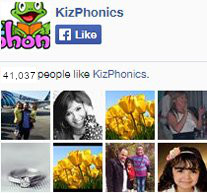The Power of Descriptive Words in Phonics Education
Unlocking Imagination with Descriptive Writing Words for Young Learners
As children embark on their journey into the world of reading and writing, they not only learn to recognize and decode words but also start to understand the nuances and shades of meaning different words can provide. Descriptive words play a pivotal role in this exploration. In the realm of phonics, words for descriptive writing hold immense potential to spark creativity, enhance understanding, and foster a deeper connection with language. Dive in as we explore the world of descriptive writing words and how they amplify the phonics learning experience.
What are Descriptive Writing Words?
Simply put, descriptive writing words are adjectives, adverbs, and other words that paint a vivid picture in the reader's mind. Whether it's the 'glistening' morning dew or a 'thunderous' roar, these words add depth, texture, and color to our narratives.
Why are Descriptive Words Essential in Phonics?
1. Rich Vocabulary Development: By introducing children to descriptive words early on, we equip them with a more extensive vocabulary, setting the stage for advanced reading and comprehension skills.
2. Enhanced Expression: Words for descriptive writing empower children to express themselves more vividly, whether in spoken or written form.
3. Cognitive Growth: Decoding descriptive words challenges children to think about context, enhancing critical thinking and comprehension.
4. Stimulating Creativity: Descriptive words invite children to imagine, create, and delve deeper into stories, enhancing their creative faculties.
Integrating Descriptive Writing Words in Phonics Lessons
1. Thematic Learning: Group descriptive words by themes. For example, words that describe the weather, emotions, or textures. This helps children associate and remember words more easily.
2. Interactive Activities: Encourage activities that involve using descriptive words. Websites like Kizphonics provide resources and games that can aid this learning process.
3. Reading & Highlighting: Use stories and ask students to highlight or point out descriptive words they come across. Discussing these words enhances understanding and retention.
4. Creative Writing Prompts: Allow children to pen down short stories or sentences using a set of descriptive words. This reinforces their understanding and encourages creative application.
Beyond Phonics: The Lasting Impact of Descriptive Words
Descriptive writing words don't just enhance phonics learning; they lay the groundwork for advanced linguistic skills. As children grow, they'll tap into this reservoir of words to articulate thoughts, emotions, and ideas with precision and flair. Moreover, these words will be their allies in understanding complex texts, making inferences, and enjoying rich literary works.
Fact Section: FAQs about Descriptive Words in Phonics
What are descriptive writing words? Descriptive writing words, often adjectives or adverbs, are used to describe and provide detailed insight into nouns and verbs, painting a clearer picture for the reader.
Why are they important in phonics? In phonics, introducing children to descriptive words enhances vocabulary, expression, comprehension, and stimulates creativity.
How can I teach my child more descriptive words? Using themed lessons, interactive online resources like those at Kizphonics, reading sessions, and creative writing prompts can effectively introduce and reinforce descriptive words.
Do descriptive words only help in writing? No, while they play a significant role in writing, descriptive words also enhance spoken language, comprehension, and critical thinking.
To conclude, the world of descriptive writing words is a treasure trove in the phonics education landscape. By weaving them into the fabric of early reading and writing lessons, we're not just teaching children to decode words; we're opening doors to a vibrant world of expression, creativity, and deep comprehension. In the quest to provide young learners with the best phonics foundation, descriptive words emerge as invaluable allies.











